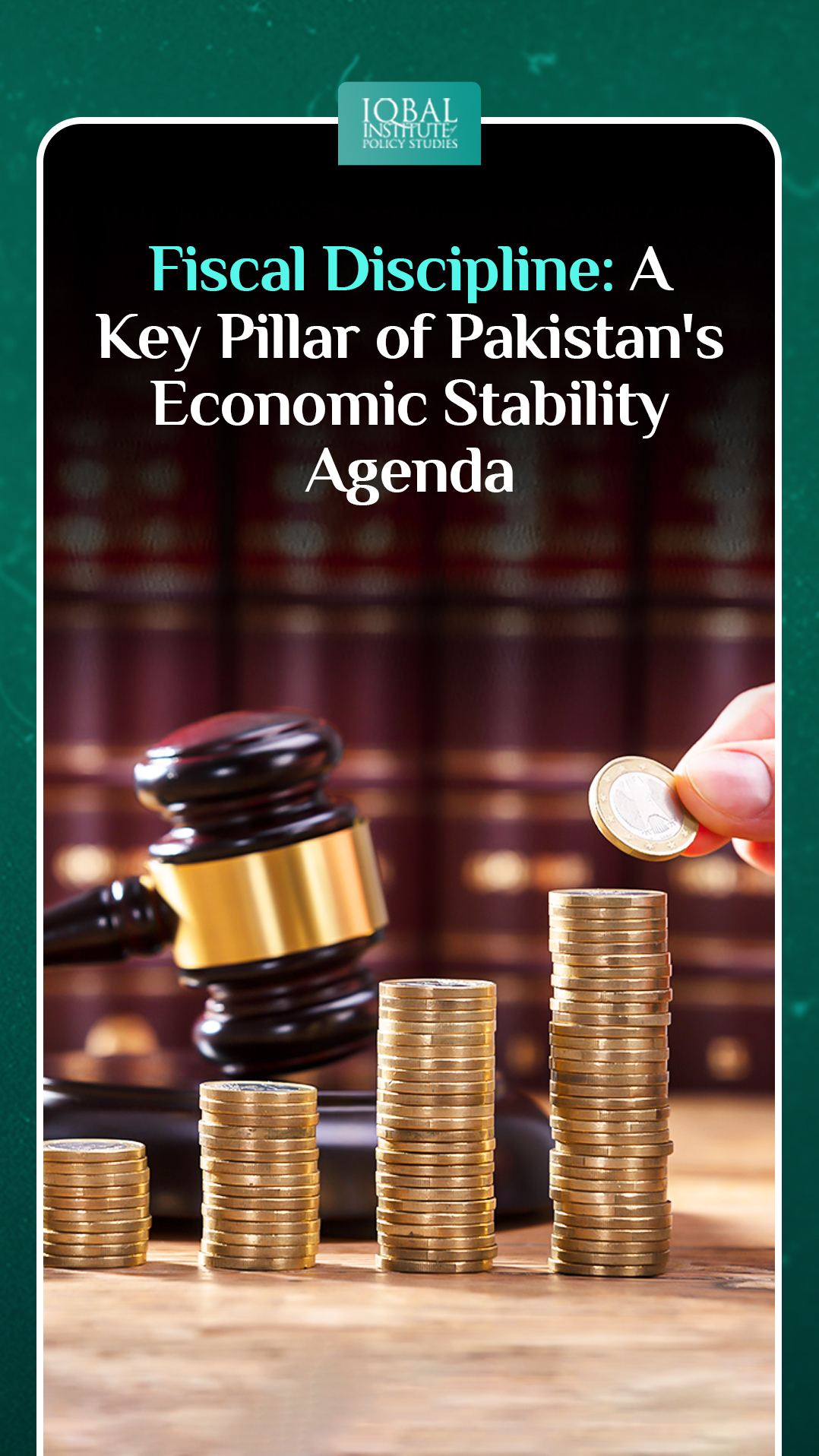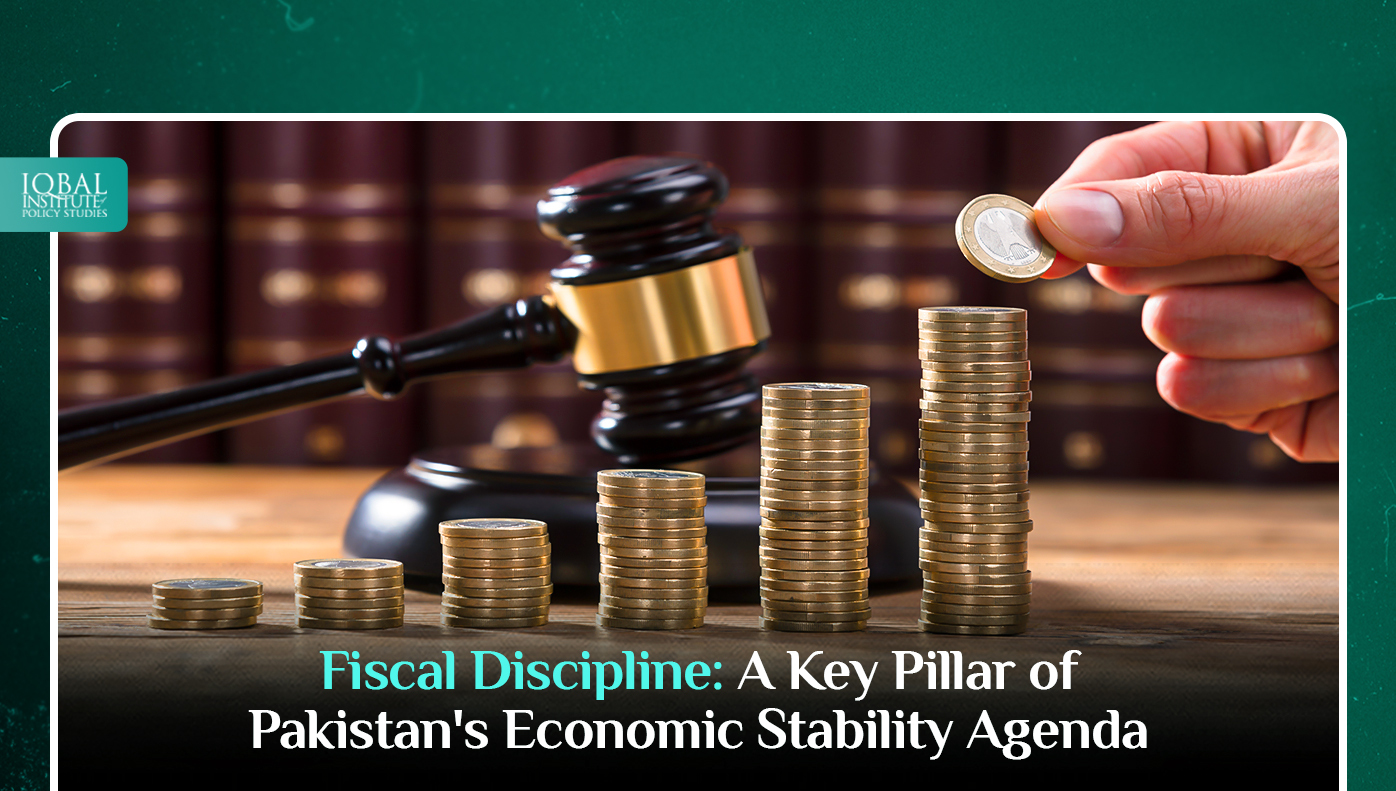Pakistan, a nation known for its rich cultural heritage and diverse landscapes, has long grappled with economic challenges that demand innovative solutions. In the pursuit of economic stability and progress, Pakistan has embarked on a multifaceted agenda, with fiscal discipline emerging as a linchpin of this transformative journey. This blog delves deep into the intricacies of “Fiscal Discipline: A Key Pillar of Pakistan’s Economic Stability Agenda.” It explores the concept of fiscal discipline, dissecting its fundamental components, discussing the formidable challenges that hinder its implementation, and, most importantly, highlighting the substantial benefits it can bestow upon the nation. In a country teeming with potential and aspirations, understanding the critical role that fiscal discipline plays in shaping Pakistan’s economic future is not just an academic exercise but a vital step towards realizing its true potential. Join us on this exploration as we unravel the significance, complexities, and promises of fiscal discipline within the context of Pakistan’s economic landscape.
Understanding Fiscal Discipline
Understanding fiscal discipline is essential for grasping its significance within Pakistan’s economic stability agenda. At its core, fiscal discipline represents the art of responsible financial management for a nation, much like how individuals must budget and spend wisely to avoid financial pitfalls. It entails the government’s commitment to align its spending with its revenue-generating capacity, ensuring that it doesn’t fall into unsustainable debt traps or resort to inflationary practices like printing money to cover budget shortfalls. Essentially, fiscal discipline is about making the tough but necessary choices to balance the books, minimize waste, and prioritize spending in a manner that serves the long-term well-being of the country’s economy and its citizens. It involves not just prudent budgeting but also effective debt management, revenue enhancement, and rationalizing expenditures. In Pakistan’s context, where economic stability is paramount, grasping this concept is vital as it lays the foundation for sustained growth and prosperity.
Key Components of Fiscal Discipline
Budgetary Control
At the heart of fiscal discipline lies a well-structured budgeting process. The government must accurately estimate its revenue and allocate funds efficiently to various sectors and programs. A balanced budget, where expenditures do not exceed revenues, is the primary objective.
Debt Management
Effective management of public debt is crucial. Pakistan must ensure that its borrowing is sustainable, and debt servicing does not consume a significant portion of the budget. This involves careful selection of financing sources and terms.
Revenue Generation
Expanding the tax base and improving tax collection mechanisms are essential to increase government revenue. Pakistan has historically struggled with low tax-to-GDP ratios, and addressing this issue is critical for fiscal discipline.
Expenditure Rationalization
Identifying and eliminating wasteful expenditures while prioritizing critical sectors such as education, healthcare, and infrastructure is vital. A well-thought-out expenditure policy can help allocate resources efficiently.
Challenges to Fiscal Discipline
Political Pressures
Political considerations often drive government spending, leading to budget deficits. Politicians may prioritize short-term gains over long-term fiscal sustainability.
Economic Uncertainty
Economic shocks, such as the COVID-19 pandemic, can disrupt fiscal plans. Pakistan needs to build resilience in its fiscal framework to handle such crises.
Tax Evasion
Tax evasion is a significant problem, undermining revenue collection efforts. Addressing this issue requires both policy reforms and improved tax administration.
Inefficient Public Spending
Inefficient allocation of resources and corruption can lead to the mismanagement of public funds. Strengthening accountability mechanisms is crucial.
Benefits of Fiscal Discipline
Economic Stability
Fiscal discipline helps stabilize the economy by reducing the risk of fiscal crises. It provides confidence to investors and encourages economic growth.
Lower Interest Costs
Effective debt management leads to lower interest costs, freeing up resources for essential public services.
Investor Confidence
A disciplined fiscal policy attracts foreign and domestic investors, driving economic development and job creation.
Long-term Planning
A stable fiscal environment allows for better long-term planning, enabling the government to address structural issues and invest in human capital and infrastructure.
Conclusion
Fiscal discipline is undoubtedly a key pillar of Pakistan’s economic stability agenda. It is a challenging endeavor that requires commitment, political will, and comprehensive reforms. However, the potential benefits far outweigh the difficulties. A disciplined fiscal policy can pave the way for sustainable economic growth, job creation, and improved living standards for Pakistan’s citizens. As the nation continues its journey towards economic stability, prioritizing fiscal discipline must remain at the forefront of its efforts.
This article is written by Radma Nouman. Radma is a research analyst at the Iqbal Institute of Policy Studies (IIPS).



Leave a Reply